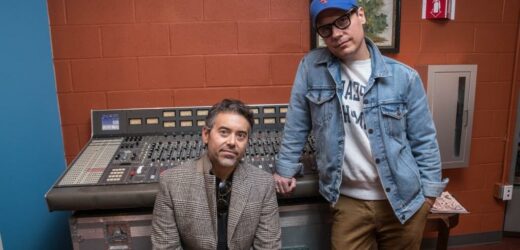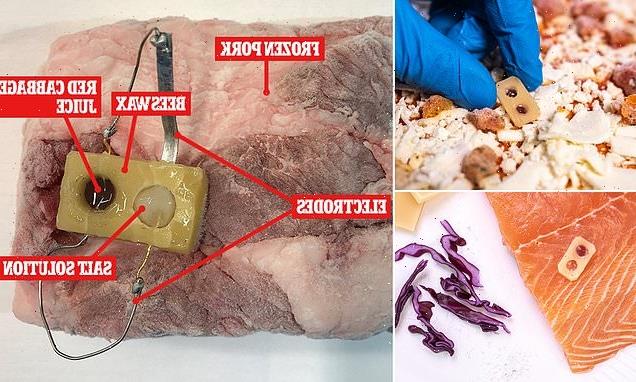From “The Shrink Next Door” to “We Crashed” to “Slow Burn,” the stock of podcasts as IP have soared over the past several years, with the most popular making the transition from audio stories to on-screen smash hits. But where podcast source material can and does serve as creative inspiration for successful TV and film adaptations —Amanda Seyfried nabbed an Emmy for her lead turn as Theranos CEO Elizabeth Holmes in Hulu’s “The Dropout,” which was based on a podcast — there remains intrinsic educational, artistic and pop-cultural value in podcasts for podcasts’ sake.
At Boston-based audio-first media company Double Elvis, run by chairman and CCO Jake Brennan and co-founder and CEO Brady Sadler, chairman and CCO and co-founder and CEO, respectively, of Double Elvis — “Disgraceland,” “Blood on the Tracks” and “Badlands” are among its popular podcasts centered on the bad behavior of rock stars and Hollywood denizens — podcasts are not just a means to an end, but a vessel through which to relay compelling, nuanced, entertaining tales about humanity.
“We certainly don’t make podcasts so that we can make television or film — we make podcasts because that’s how we tell stories,” says Brennan. “And we’re really good at doing it in the corner of the podcast space world that we’ve carved out for ourselves, which is in music.”
While Brennan “both loves and hates” comparisons made between podcasts and the golden age of radio, he and Sadler implement a “strict mandate” on the production side “to not make podcasts sound like a radio drama.”
“The ubiquity of listening to audio these days has created this familiar muscle memory that we have as a culture,” says Brennan. “But at the same time, a lot of those radio dramas sounded so hokey. With our podcasts, you want to get really immersive and that’s what we strive to do. So on one hand, there is this resurgence and there is a similarity. But on the other hand, we need to push ourselves way beyond that from a production standpoint.”
Aaron Hart, head of film and TV at Wondery, Amazon Music’s podcast arm producing shows such as “Dirty John,” “Joe Exotic” and “Dr. Death,” all of which were adapted as TV series, notes that, from a marketing perspective, they are ever-growing fertile ground for cross-over potential; according to the 2021 IAB U.S. Podcast Advertising Revenue study, ad sales are on track to reach $4 billion by 2024.
But when packaging a podcast, he asserts, the emphasis remains not on whether it might transition over to TV and film, but how well it will fare as audio entertainment.
“Each of our miniseries, our podcasts are traditionally six-episode seasons that are proof of concepts for TV series providing the basis of structure that might work in TV,” says Hart. “Wondery is an audio-first company and doesn’t greenlight a podcast with TV as the primary consideration, but many of the attributes we look for in a good podcast naturally applies to TV, such as strong characters in a narrative that carries listeners from episode to episode.”
Double Elvis and Tenderfoot TV’s hit podcast “Dead and Gone,” centered on missing and murdered Grateful Dead fans, was one such podcast that captivated listeners. Season 1 of the podcast is in development as a TV series, with Oscar-nominated and Emmy Award-winning documentary filmmaker Joe Berlinger (“Conversations With a Killer: The John Wayne Gacy Tapes”) attached as a producer and director.
Music industry vet Donald Albright, who co-founded Tenderfoot TV in 2016 with Atlanta-based indie filmmaker Payne Lindsey, says even when a podcast makes the leap to TV or film, its worth as audio content — on both the financial and creative fronts — remains.
“Everything that we developed as a podcast, we had a thought: could it be a film or as a limited series?” says Albright. “The difference though was that we still saw the value in its longevity as a podcast. By the time we do season 1, and think it will make a great documentary or a scripted or unscripted series, by the time that gets made, we’ve done two more seasons of the podcast. Our bread and butter is the podcast. That’s where the money’s going to be made. That’s where the audience is going to be built.”
In the end, adds Brennan, “A good story works in any medium.”
“It doesn’t matter if it’s a podcast, a tv show or a feature film,” he says. “A good story is a good story.”
Read More About:
Source: Read Full Article


